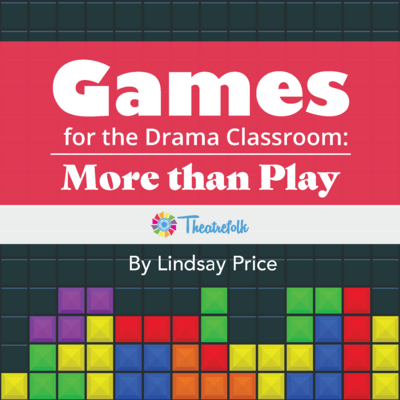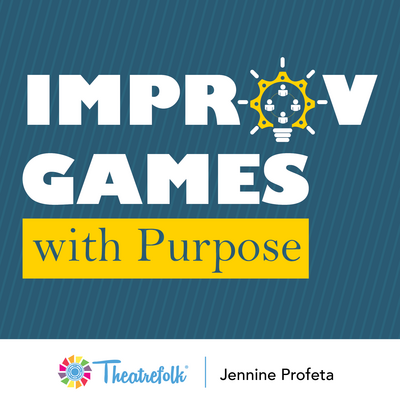Giants, Elves, Wizards, and More
Giants, Elves, Wizards is a classic game used in drama classes, sports, Scouts, and more. It’s basically a life-sized version of Rock, Paper, Scissors (or “Roshambo” in some areas) with a chasing element where players tag members of the opposite team to win them over to the other side. In the drama classroom, it’s a great physical and vocal warm-up, and encourages students to employ teamwork and strategy to win players over to their team. In this article, we’ll explain the basic gameplay for Giants, Elves, Wizards, and then give lots of options to vary it.
You may want to ask your school principal or phys ed teacher if you can play Giants, Elves, Wizards outside, or if you can use the gym for kids to spread out. If not, push any tables, desks, chairs, and other furniture out of the way before you start.
Basic Rules
In Rock, Paper, Scissors, we all know rock smashes scissors, scissors cut paper, and paper covers rock. In Giants, Elves, Wizards, giants step on elves, elves hide from wizards, and wizards use magic on giants. Giants beat elves, elves beat wizards, and wizards beat giants.
Each character has an action. For giants, students will raise their arms above their heads to look tall and intimidating. For elves, students will crouch down close to the floor to show how small they are. For wizards, students will stand with their arms straight out in front of them and wiggle their fingers like they’re trying to cast a spell. Easy, right?
Now comes the strategy and teamwork part. Divide students into two teams and send them to opposite sides of the room. This is their home base. Each team will huddle up and secretly decide what character they’ll be. Once they’ve decided their strategy, they’ll turn, meet in the middle of the room, and form two lines facing each other, dodgeball style. Leave about 6–10 feet between teams.
On the count of three, all students will repeat “giants, elves, wizards” three times in their lines, doing the corresponding action. After the third repetition, each team will then yell out their character in unison and do that action. For example: “Giants, elves, wizards… (brief pause) ELVES!” If the other team calls out Giants, the Giants team will chase the Elves team back to the Elves’ home base wall and try to tag them. However, if the other team calls out Wizards, the Elves team will chase the Wizards team back to the Wizards’ home base wall to try and tag them.
The chasing team’s goal is to tag as many of the opposing team’s members as they can before they reach their home base. Any tagged students will join the winning team’s side. Then gameplay will start again, with each team choosing another character to play. One team will now have more members. The goal is to bring all the players over to one side.
Phew! Now that you know how to play, we’ll offer some variations to mix up your gameplay and give your students some creative challenges.
Variations
Come up with themed variations for different events, holidays, or shows you’re studying. For example, you could do a Halloween-themed game with Witches, Vampires, and Mummies. If you’re studying The Lightning Thief: The Percy Jackson Musical, perhaps you could use the “big three” gods of that show as characters: Zeus, Poseidon, and Hades. Students will need to explain how one character beats the next, and create new actions for each character.
In the television series The Big Bang Theory, the characters play an expanded version of the game called Rock, Paper, Scissors, Lizard, Spock. This makes it more complicated as each character now can beat an additional character. Have your students try adding two new characters to Giants, Elves, Wizards, and explain how the new characters fit in.
Try adding a new rule. What happens if both teams choose the same character? What happens if they do this multiple times in a row?
Initiate a “buy back” system, where students can complete tasks prior to the match to earn back a member of their team that they lost earlier. Perhaps students must recite part of a monologue, do a mime sequence, or make up a dance on the spot. This could be especially helpful if one team is running out of members quickly!
Use the results of the final match as a writing prompt for your students. For example, if in the last round the Elves were beaten by the Giants, you might use this scene to start writing:
“The remaining elves swore vengeance against the giants who had squashed their brethren. They started sharpening their tiny spears…”
Or if the Elves beat the Wizards:
“The wizards didn’t see the elves coming until the last moment. But that wasn’t anything unusual. It was always a sneaky surprise attack when the wizards least expected it. And no matter how often the wizards boarded up the cracks in the walls and kept their doors tightly shut, the tiny elves managed to get themselves inside, night after night.”
The writing can be serious, silly, heartful, cold, or any other feeling students find appropriate and inspiring. If you wish, have students share what they have written.
Games for the Drama Classroom: More Than Play
by Lindsay Price
A collection of games and activities that go well beyond the notion of "play."
Improv Games with Purpose
by Jennine Profeta
Improv games including feedback suggestions and questions, game variations, teaching tips, side coaching tips, entry prompts, exit slip questions, and more!





